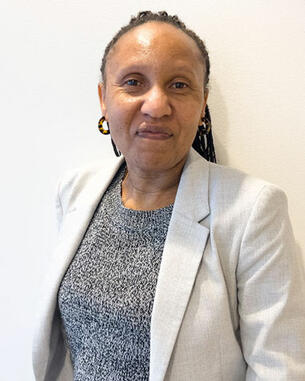 Catherine Chilute Chilanga skal forsvare avhandlingen sin for graden philosophiae doctor (ph.d.) ved Universitetet i Sørøst-Norge.
Catherine Chilute Chilanga skal forsvare avhandlingen sin for graden philosophiae doctor (ph.d.) ved Universitetet i Sørøst-Norge.
Catherine Chilute Chilanga har fulgt doktorgradsprogrammet personorientert helsearbeid ved Fakultet for helse- og sosialvitenskap.
Alle interesserte ønskes velkommen til prøveforelesning og disputas.
- Tittelen på avhandlingen er: Appropriate medical imaging: Exploring radiographers’ assessment of referrals.
Sammendrag
The clinical information provided in a radiology referral form when a patient is referred for a radiological examination should be critically assessed. This determines whether the requested examination is the most appropriate to confirm a suspected disease or medical condition.
In the thesis, Appropriate medical imaging: Exploring radiographers’ assessment of referrals, Catherine Chilanga enlightens about the global concerns of conducting inappropriate radiological examinations. These include radiation and general safety for patients, reduced quality of healthcare and increased workload of the already scarce health professionals from carrying out unnecessary examinations.
Through exploring how radiographers assess the patients’ referral information and actions taken to safeguard that appropriate radiological examinations are performed, Chilanga identifies some importance tasks they carry out. The significant tasks identified include radiographers communicating with and physically assessing the patient, as well as counter-checking medical records to obtain vital additional clinical information. Radiographers further consult with radiologists and referring clinicians when confronted with doubtful referrals to validate the value of conducting the examination. Chilanga’s findings further show that using evidence- based radiology referral guidelines when assessing appropriateness of radiological examinations supports radiographers in decision-making. This in turn promotes evidence-based practice and gives patients a sense of personal value in knowing that they are receiving the best available healthcare.
Healthcare institutions focus to provide person/people centred healthcare which ensures that the best care is delivered to people receiving the health services. Chilanga’s research shows that the radiographers’ actions promote people centered care principles. These include among others efficient, effective, and evidence-based care which support health services that are safe, of high quality and coordinated for patients’ continuity of care.
